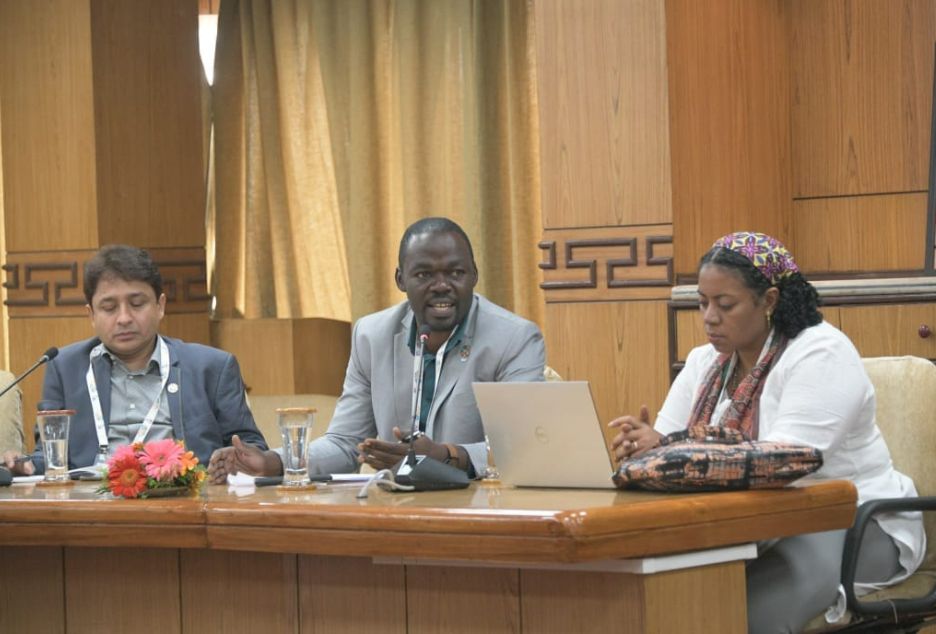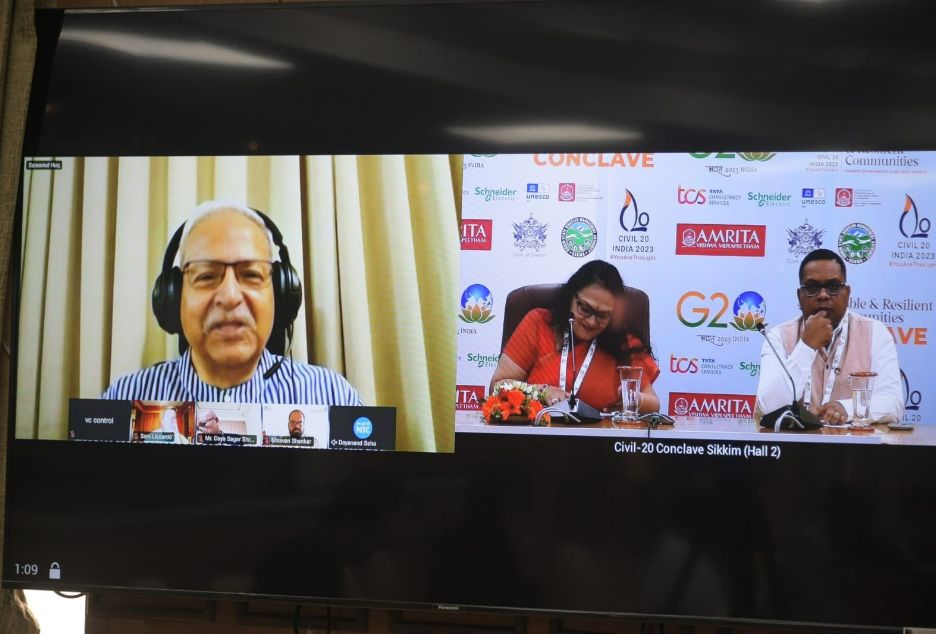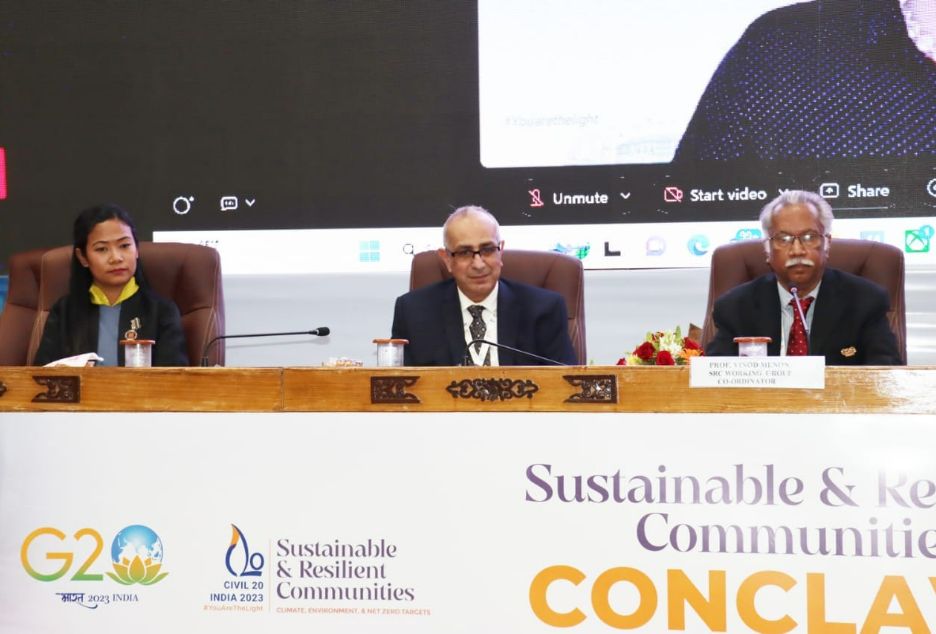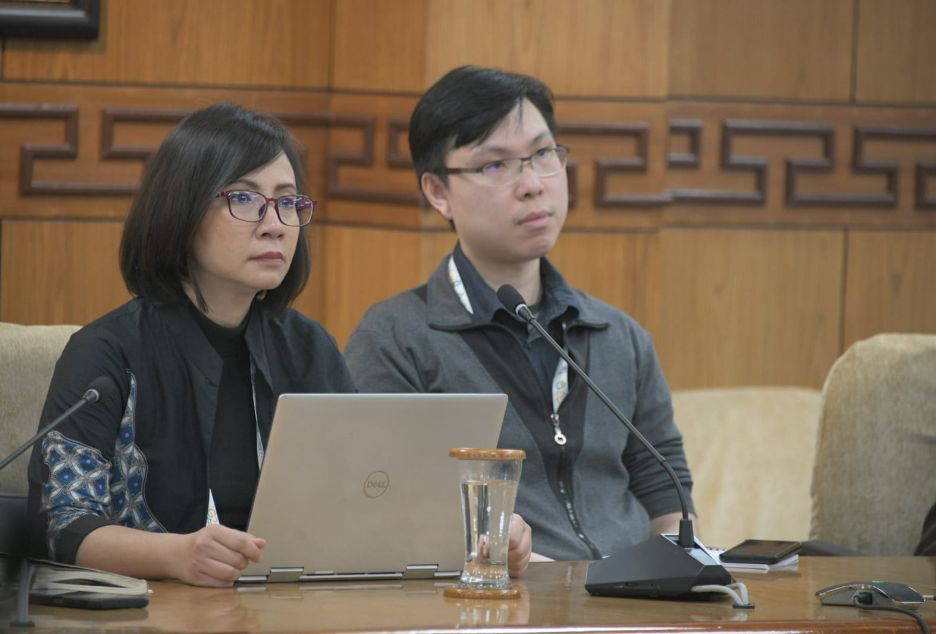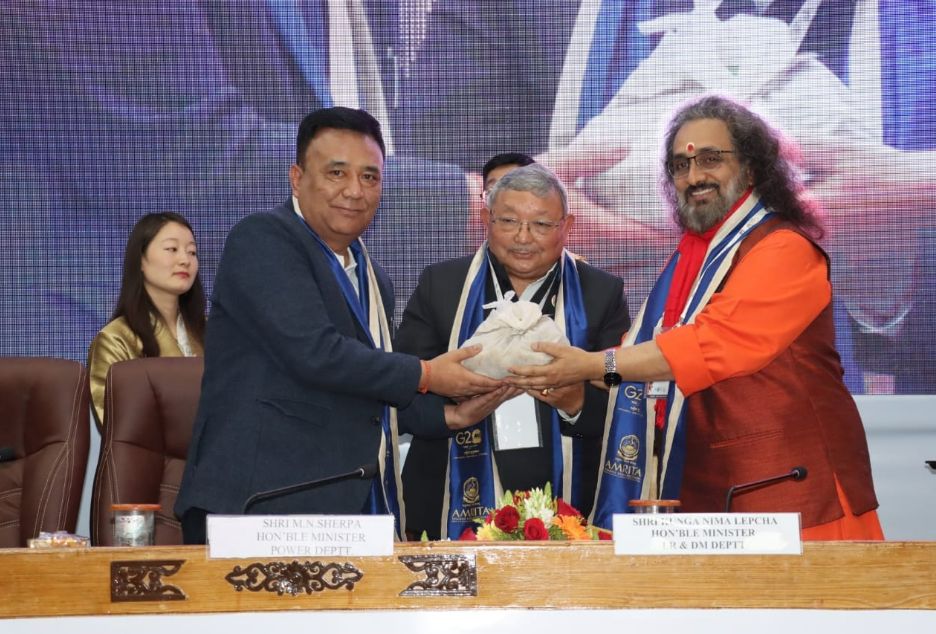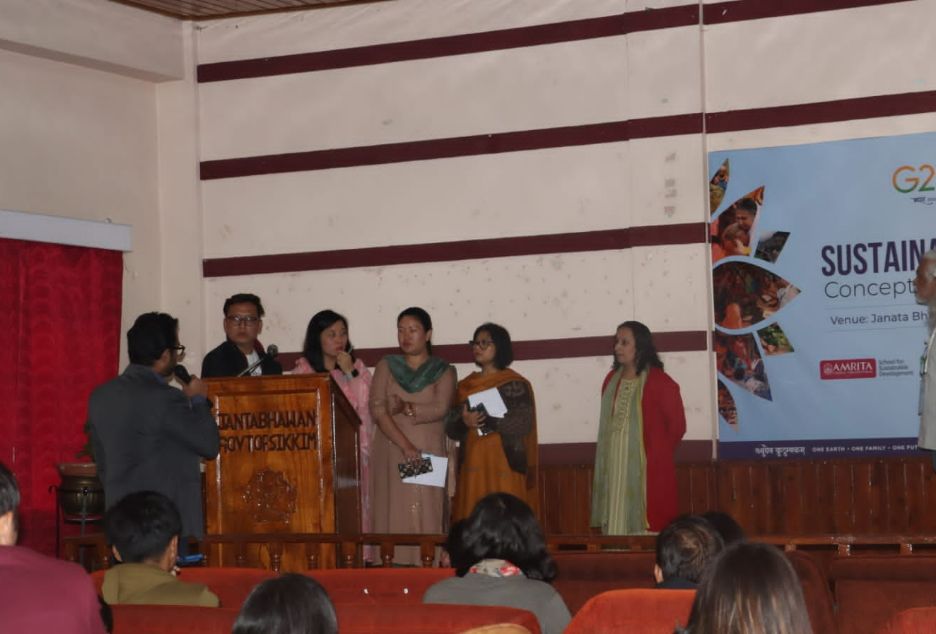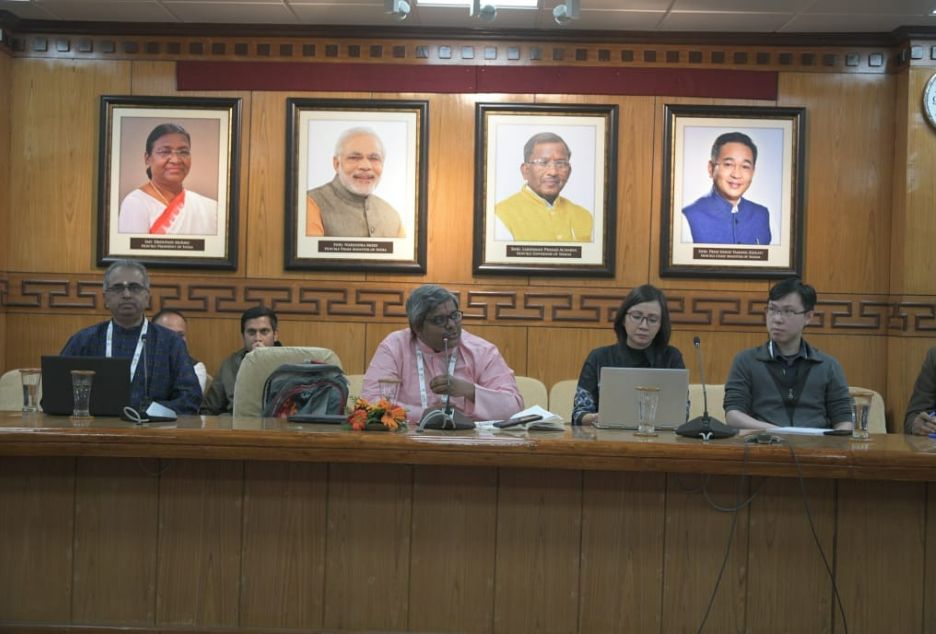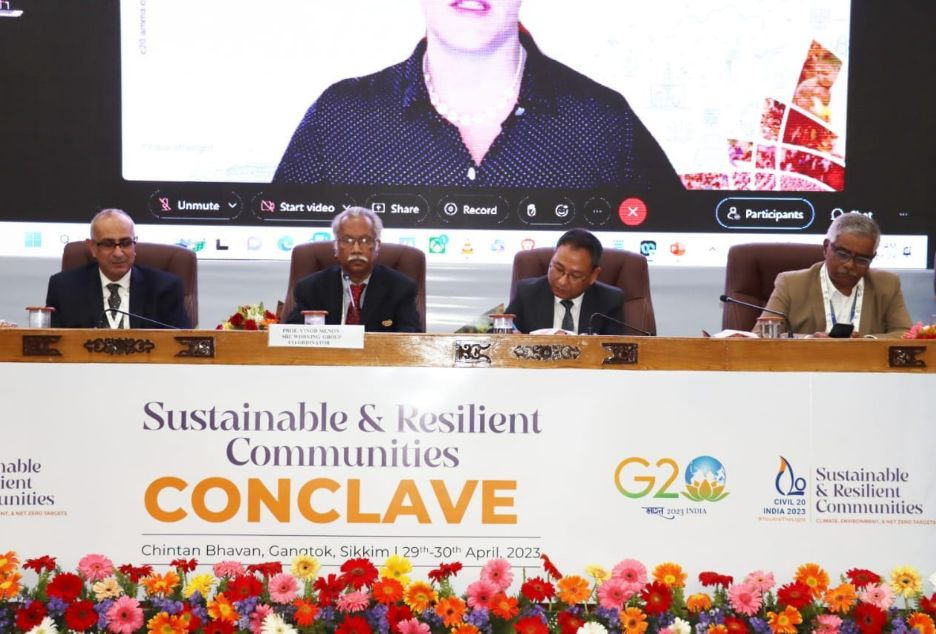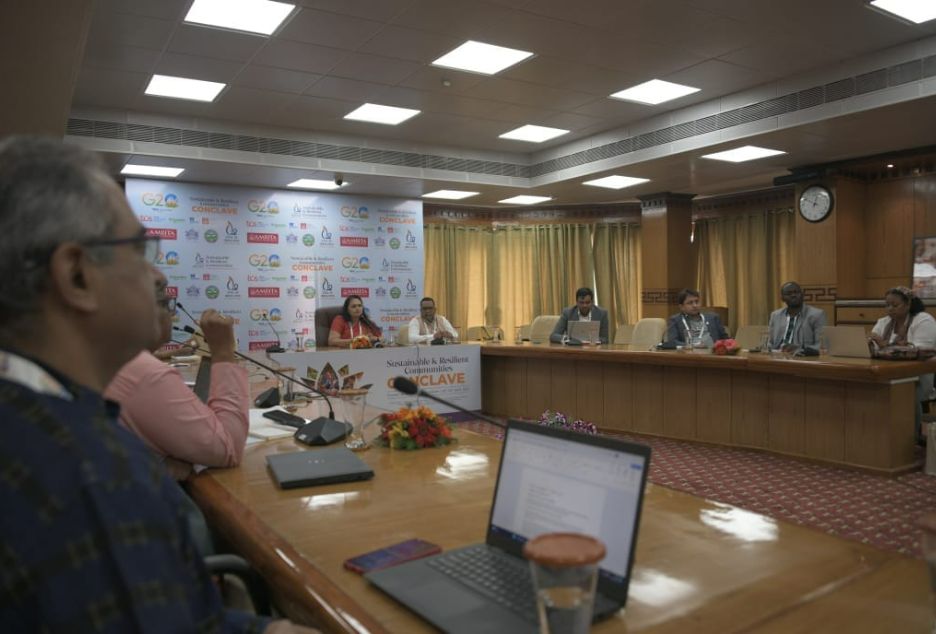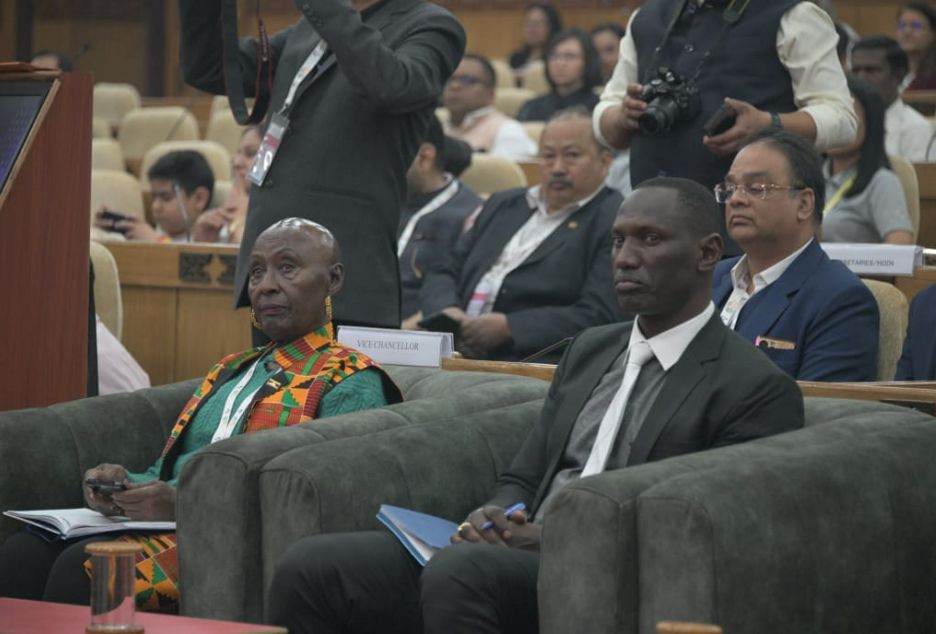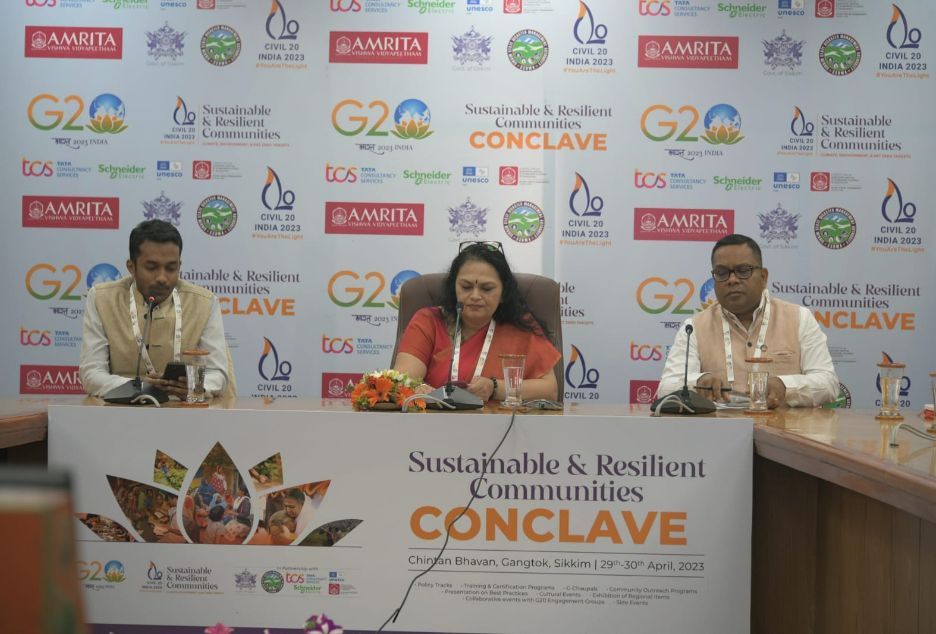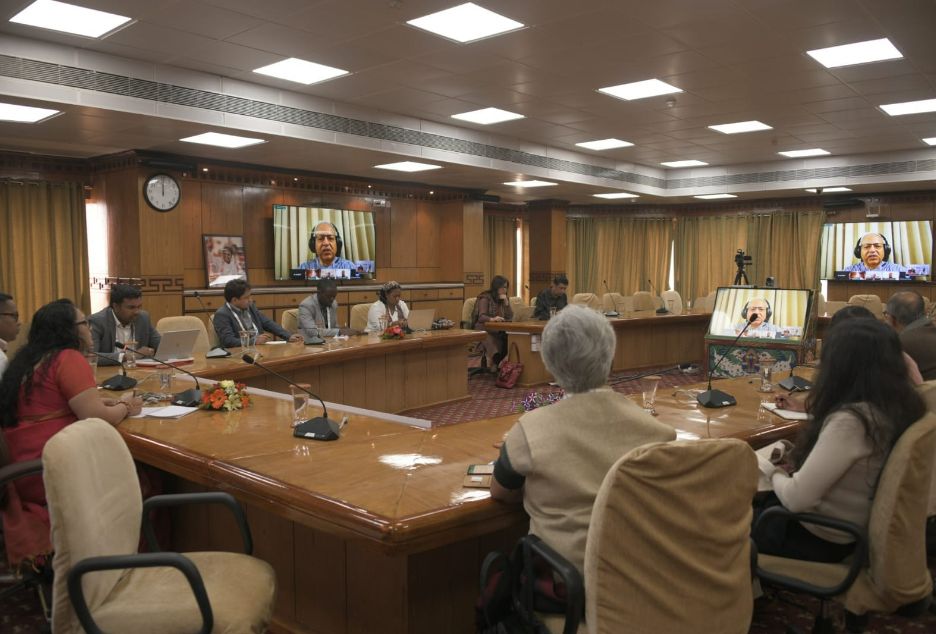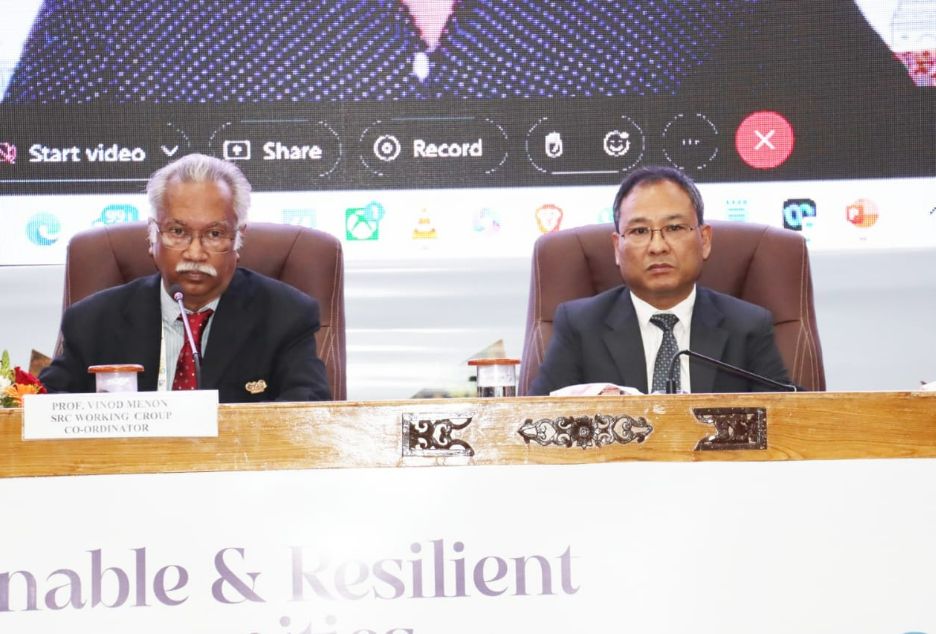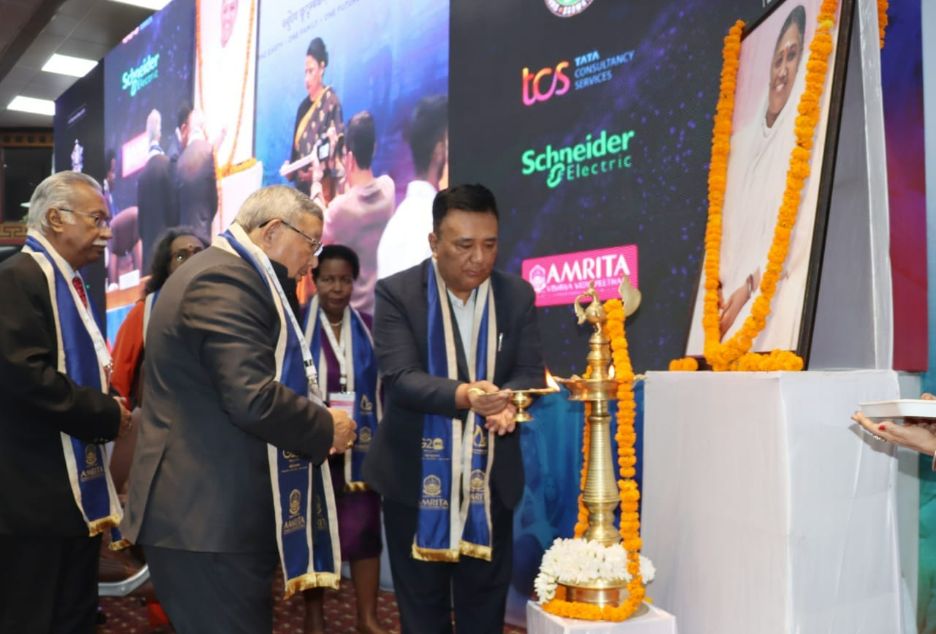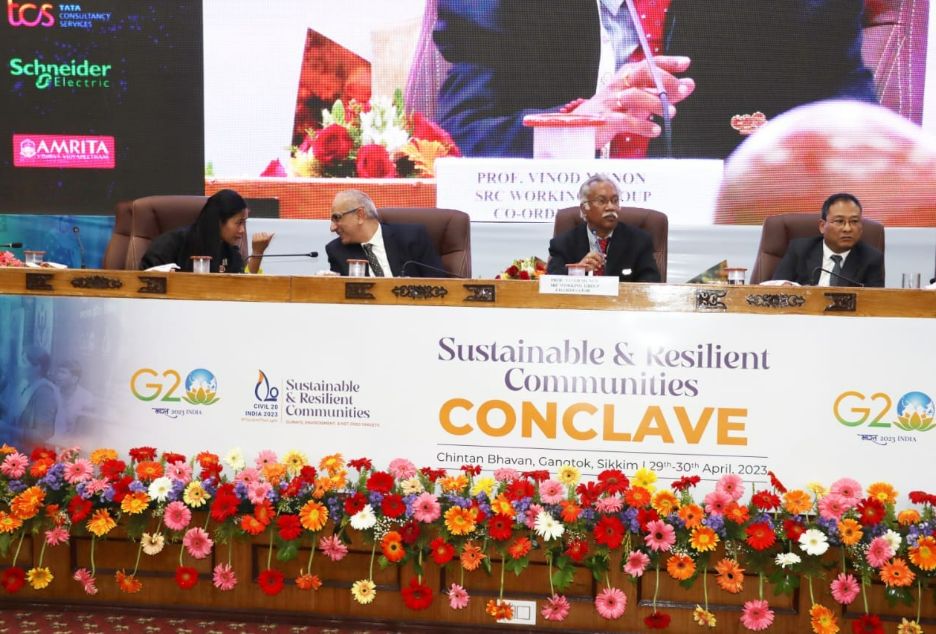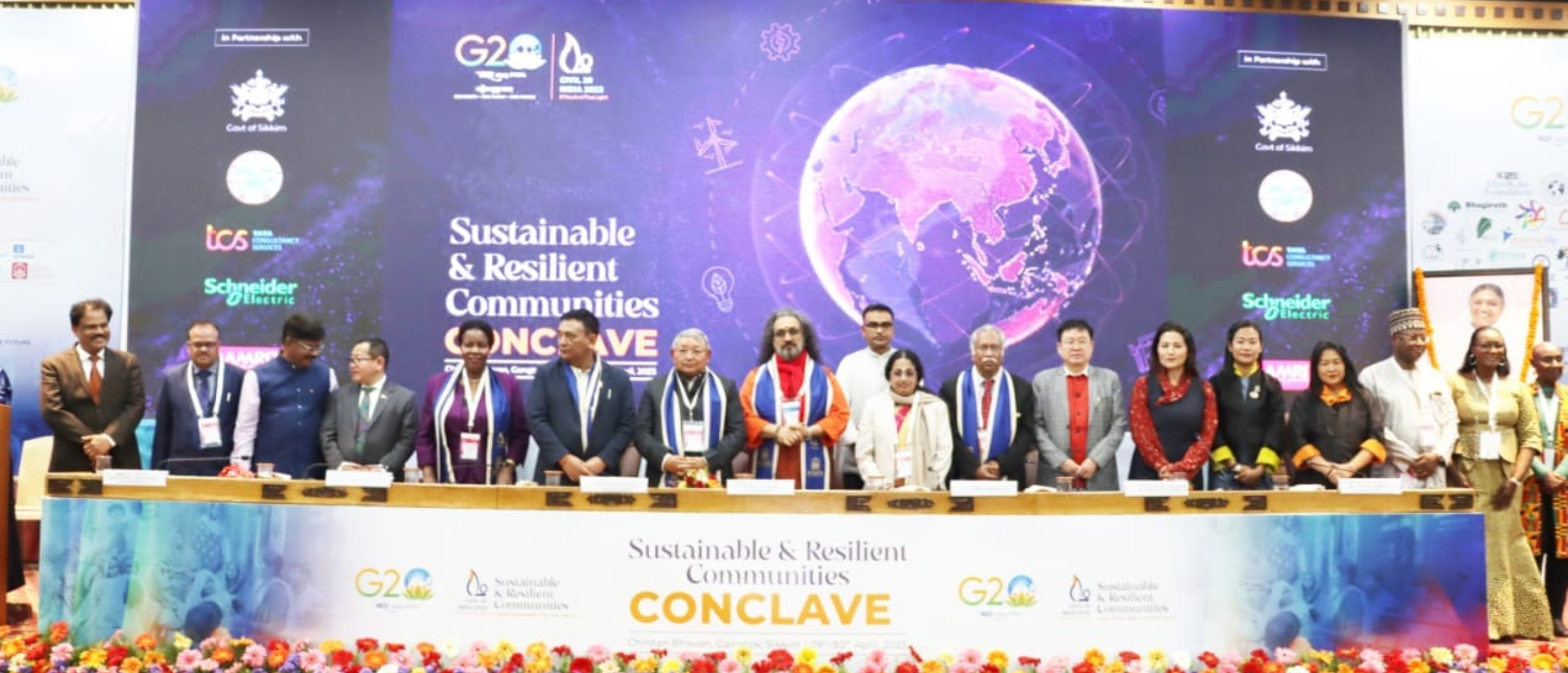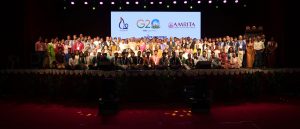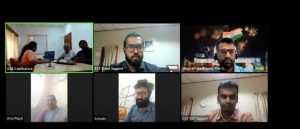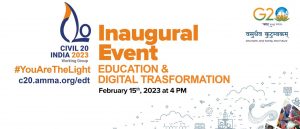The gathering in Sikkim emphasised that the world’s diverse cultures need to join hands and engage in deeper dialogues to help pave the way for climate resilience, social justice, environmental sustainability, and net-zero emission management.
The Sustainable and Resilient Communities (SRC) Conclave of the Civil 20 (C20) Working Group on Sustainable and Resilient Communities – Climate, Environment and Net Zero Targets took place in Gangtok, Sikkim in India’s North-East Himalayas. More than 200 Indian and international delegates, including representatives of civil society organisations, policy makers, academicians, and experts from industry, participated in discussions and workshops at the two-day event under India’s G20 Presidency.
The deliberations revolved around the global policies related to Climate Resilience and Social Justice, Net-Zero Emission Management, Environment Sustainability and Compassion-Driven Approaches. The participants identified gaps in these areas and brainstormed innovative solutions which will directly contribute to the policy recommendations to be launched at the C20 Summit in July 2023.
Dignitaries present during the inaugural ceremony included Shri Kunga Nima Lepcha, Hon’ble Minister, Land Revenue & Disaster Management, Govt of Sikkim; Shri MN Sherpa, Hon’ble Minister for Transport and Power Department, Govt of Sikkim; Shri Anil Raj Rai (IAS), Secretary, Land Revenue & Disaster Management, Govt of Sikkim; Her Excellency Ms Joyce Kakuramatsi Kikafunda, High Commissioner of the Republic of Uganda; Swami Amritaswarupananda Puri, Troika and Steering Committee Member C20 and Vice Chairman, Mata Amritanandamayi Math; and Dr Maneesha V Ramesh, SRC Working Group Coordinator and Provost of Amrita Vishwa Vidyapeetham. Shri Vijay Nambiar, C20 Sherpa, addressed the gathering virtually.
As Chair of C20, Amma emphasised in her video message at the Inaugural Ceremony that humanity must urgently come together to face the warning signals our natural world is sending about the impact of environmental destruction.
“Humanity is facing many extraordinary challenges today. At this point, human beings need two qualities: the wisdom to recognise the problem and the intelligence and mental attitude to correct it. Unfortunately, we are like a student who starts studying the day before the exam. We think correctly only when we are on the brink of disaster. The future belongs not to single entities who stand divided, but to those who mingle and cooperate with others. Countries and societies which try to rise on their own will surely fail. This is a warning from nature to humankind. Hence, let our mantra be ‘Mingle, Not Single’. A single nation, race or religion cannot survive in isolation. This Earth belongs to us all,” said Amma.
“There is an underlying rhythm to our universe; the universe and every living thing in it have an unbreakable connection to each other. The cosmos is like a vast, interconnected network. Think of a net that is stretched out by four people holding its four corners. If it is shaken slightly in one corner, the vibration is felt all over the net.
“Similarly, whether we know it or not, all of our actions reverberate throughout creation, whether done by an individual or a group. So let us not think ‘I will change after they do.’ Rather, even if they do not change, if we change, we can bring this change to others. From ancient times, the world is one family has been the mantra of Indian soil. The Presidency of G20 nations is a unique opportunity to model this truth before the world. Let us light a new lamp of change here. May innumerable lamps be lit from this flame and carried across the world.”
Shri Kunga Nima Lepcha emphasised how the Sikkim Government has prioritised measures to restore equilibrium with nature.
“Sustainable and resilient communities are able to meet their present needs without compromising the ability of future generations to meet their own needs, and recover from various environmental, social, and economic challenges. Since 2015, the Sikkim Government has taken many measures to promote environmental, social, and economic sustainability, infrastructure and technology, and emergency preparedness. Sikkim has topped in all parameters of Sustainable Development Goals for 2021 in the North-East region. We are the first state in the world to turn fully organic,” he said.
“Being a small Himalayan state subject to various manmade and natural challenges, we are committed to learning from the best practices in the world to secure our future. Many organisations are partnering with Sikkim State Disaster Management Authority regarding this, and I welcome all help, initiatives, and ideas in this direction. All of us in the world need to come together to join hands to secure the future of our next generations. This cannot be done by working in isolation. Despite remarkable diversity, all people need to consider themselves as world citizens so that all mouths can be fed and nature protected.”
Swami Amritaswarupananda Puri spoke about the critical need to restore humanity’s reverence for Mother Nature.
“As Amma says, the lack of love and respect towards nature is the reason why all our efforts to create sustainable and resilient communities failed to produce the expected results. Our forefathers had a deep love and reverence for nature. They saw the visible diversity in the world with a worshipping attitude while having faith in the limitless power behind the many names and forms. However, modern society lacks this attitude. This needs to change,” said Swamiji.
“Climate change is happening at an unprecedented rate today and can no longer be dismissed as a myth. The change is so severe that according to some calculations, human species may not exist beyond another 50 years. My request to the scientifical and technological community is to ensure a symbiosis of science and spirituality so that both work harmoniously. We shouldn’t be suspicious or reluctant to experience and accept the spiritual recommendations offered to us by the ancient seers, especially when all their concerns of the end of humanity are on the verge of coming true.
“Amma highlights the false sense of security provided to us by modern technology which makes us forget the delicate nature of life on this planet. We need to think beyond our borders, diversity, and differences, and see the world from a perspective of oneness, as emphasised by India’s G20 slogan of Vasudhaiva Kutumbakam—the whole world is one family.”
Said Dr. Maneesha V Ramesh: “Guided by the vision of Amma as C20 Chair, this Conclave provides a platform for the civil society organisations and delegates from around the world to engage in deeper dialogues to address the challenges and gaps in the areas of climate resilience, social justice, environmental sustainability, and net-zero emission management with an aim to help build communities that are sustainable and resilient.
“I am delighted that the event is being held in partnership with the Sikkim Government. Sikkim is a state which is truly an example of sustainability and resilience. The policy deliberations among a multitude of stakeholders will bring out the recommendations to be provided to the G20 leadership team. I sincerely hope that this will help pave the way to develop scalable models that can be adopted to multiple countries.”
During the event, SRC launched the Global Seedball Campaign: Seeds of Hope in Sikkim to invite the people of that region to take part. The project is in collaboration with AYUDH, the Mata Amritanandamayi Math’s global youth wing, and aims to disperse one million seedballs in fragile ecosystems worldwide. It is also a humble effort to create general awareness in people about the significance of seedballs in restoring ecological balance. Volunteers are gathering in MAM’s centres across India and in Asia, Europe, South America, North America, Australia, and Africa as part of efforts to encourage people to contribute in whatever way possible.
